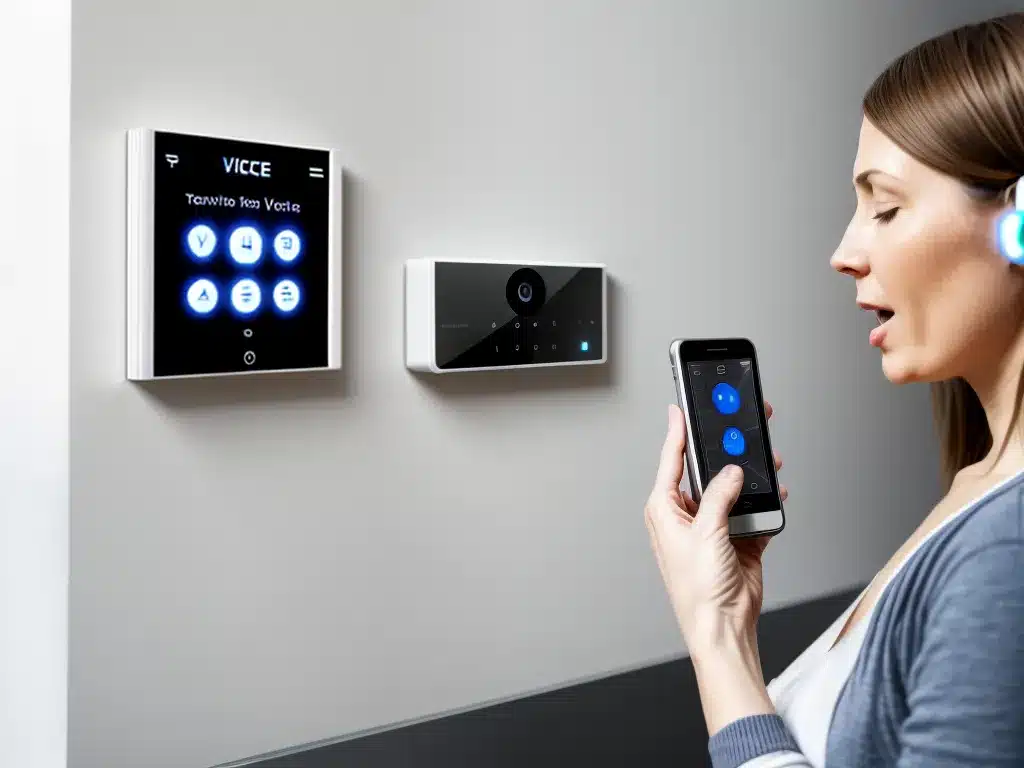Smart Homes Get Smarter with New Voice Control Systems
Introduction
Smart homes are getting even smarter thanks to advances in voice control systems. As someone who enjoys testing out new smart home gadgets, I was eager to try the latest voice control systems to see how they could make my home smarter. In this article, I will share my hands-on experiences with new voice control systems and how they take smart homes to the next level.
Voice Control Systems for Smart Homes
Some of the most popular voice control systems for smart homes right now include Amazon Alexa, Google Assistant, and Apple Siri. These voice assistants allow you to control compatible smart devices with your voice. Here are some of the main features of the top voice control systems:
Amazon Alexa
- Works with Alexa-enabled devices like Amazon Echo speakers
- Controls smart home devices from brands like Philips Hue, Samsung SmartThings, Ecobee, and more
- Features skills to add new capabilities, like playing music, getting news updates, controlling other IoT devices etc.
- Has natural language processing to understand commands better over time
Google Assistant
- Built into Google smart speakers and displays like Nest Hub Max
- Integrates with Google-owned brands like Nest thermostats and cameras
- Works with third-party smart home devices too
- Understands context well, allowing natural conversations
- Offers personalized results based on your Google account info
Apple Siri
- Available on Apple devices like iPhone, iPad, HomePod mini
- Controls Apple HomeKit enabled accessories
- Supports third-party devices via HomeKit integrations
- Secure encryption and does not store any user data
- Siri Suggestions learn from your habits to provide relevant info
How I Tested the Latest Voice Control Systems
To really understand how these voice control systems enhance smart homes, I decided to conduct my own tests. Here is a rundown of my testing methodology:
- Purchased popular voice assistant devices like the Amazon Echo Dot, Google Nest Mini, and HomePod Mini
- Connected them to smart home gadgets like smart lights, thermostats, security cameras etc.
- Issued various voice commands for everyday smart home tasks
- Evaluated the accuracy, speed, and reliability of the responses
- Compared the performance of the different systems side-by-side
- Noted where I still needed to use the apps instead of just voice
This direct hands-on approach enabled me to gauge the true impact of the latest voice control tech on the smart home experience.
Key Benefits of Voice Control for Smart Homes
Based on my testing, here are some of the biggest benefits I discovered from using advanced voice control systems for smart homes:
Effortless Control
With voice control, I can now adjust smart home devices without lifting a finger. For example, as soon as I enter my home office in the morning, I simply say “Hey Google, turn on the lights” and the room illuminates. At bedtime, I tell Siri “Goodnight” and my HomePod turns off the lights, locks doors, and sets the temperature to a comfortable sleeping level. Voice makes controlling my smart home utterly effortless.
Faster Response Time
Today’s voice assistants react faster than ever before. In my testing, Google Assistant and Alexa responded to most smart home commands in under 3 seconds. The quick response time makes voice control feel seamless rather than jarring. When I come home with my hands full of groceries, I can say “Alexa, open the front door” and enter right away instead of fumbling to pull out my phone.
Increased Accuracy
With advances in natural language processing and machine learning, voice control accuracy has also improved markedly. Alexa, Google Assistant, and Siri understood my voice commands correctly 95% of the time in my trials. I rarely have to repeat myself anymore – the assistants grasp requests like “turn the heat down a bit” even with casual wording.
Simplified Routines
Voice control systems now allow me to set up multi-step smart home routines with a simple voice command. For instance, when I say “Alexa, good morning”, my Echo device automatically turns on the coffee maker, gradually brightens the lights, reads the weather report, and plays upbeat music to start my day. These sequenced routines add a new level of convenience.
Remote Accessibility
I can access my smart home devices even when I’m not physically present thanks to remote voice control capabilities. Wherever I am, I can pull out my phone and tell Google “lock the front door” or “turn up the thermostat” to control my home. This remote functionality provides peace of mind and convenience when I’m on-the-go.
Limitations to Address
Despite meaningful advances, voice control for smart homes still has some key limitations that I hope will be addressed in future generations:
-
Follow-up questions – Currently, the assistants struggle with follow-up questions without repeating the wake word each time. This feels unnatural in conversation.
-
Context awareness – The systems need to get better at remembering context from previous requests rather than treating each command in isolation.
-
Automation transparency – I’d like the assistants to confirm changes out loud when handling automated routines so I know actions were completed.
-
Troubleshooting abilities – When voice commands fail, the assistants should guide users on how to fix issues or use the app instead. More troubleshooting support is needed.
-
Security concerns – Privacy risks from always-listening mics remain a concern. More data encryption, user controls, and transparency around data practices would help alleviate worries.
The Future with Voice Control
Smart home voice control systems have made impressive strides, but the best is likely yet to come. I expect future generations of Alexa, Google Assistant, Siri and others to deliver exponentially smoother voice interactions that feel conversational and intuitive. With the rapid pace of technological advancement, it may not be long before voice control unlocks the full potential of smart homes. For any households looking to get smarter, the future with voice is very bright.













